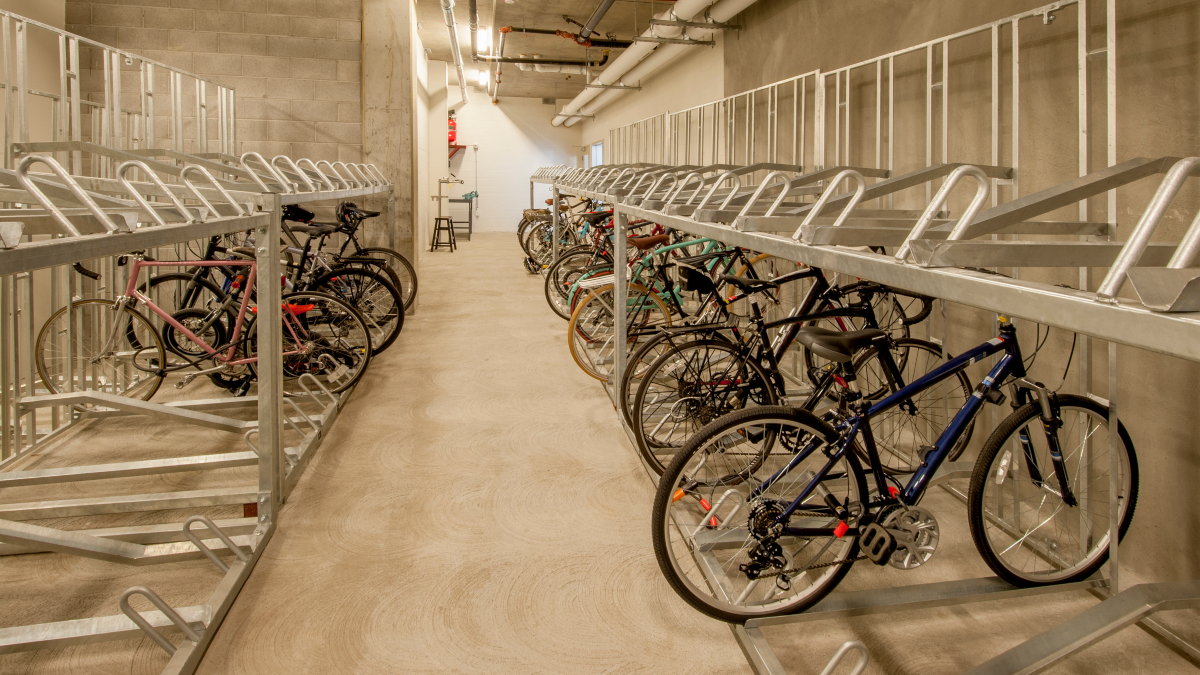
EPBD: Mandatory bicycle parking in all new and renovated buildings will make cycling easier for millions of Europeans
The European Commission’s revision proposal for the Energy Performance of Buildings Directive will make bicycle parking mandatory in all new and renovated buildings in the EU, a measure that will make everyday cycling easier for millions of people.
All new residential and non-residential buildings in the EU as well as those undergoing major renovation will have to provide mandatory spaces for bicycle parking, according to a new European Commission revision proposal for the Energy Performance of Buildings Directive (EPBD) published on 15 December.
The proposal recognises that sustainable mobility such as cycling can play a major role in reducing the overall energy consumption of households, and the inclusion of minimum bicycle parking requirements in all buildings meets a long-standing recommendation by the European Cyclists’ Federation (ECF), which welcomes the Commission’s proposal.
Philip Amaral, Policy and Development Director of the European Cyclists’ Federation: “Buildings and mobility together account for more than 60% of Europe’s greenhouse gas emissions. As most trips start and end at some type of building, it only makes sense not to treat these two sectors in isolation. ECF is pleased to see that cycling, the most energy-efficient of all transport modes, has found its well-deserved place inside the Energy Performance of Buildings Directive.”
The EPBD revision proposal is part of the Commission’s Renovation Wave Strategy and will help reach the ambitious objectives of the European Green Deal, of which the promotion of green mobility is a key part. The proposal rightly recognises that the lack of bicycle parking spaces is too often a major barrier for people to cycle and that mandatory bicycle parking is a way to promote cycling as “a central element of sustainable, zero-emission mobility.” According to ECF research, only six EU member states currently have minimum quantitative bicycle parking norms in place.
ECF welcomes in particular:
- The minimum requirement to ensure two bicycle parking spaces “for every dwelling” in new and renovated residential buildings with more than three car parking spaces
- The minimum requirement to ensure one bicycle parking space for every car parking space in new and renovated non-residential buildings with more than five car parking spaces
- The minimum requirement to ensure one bicycle parking space for every car parking space in all existing non-residential buildings with more than 20 car parking spaces by 2027
- The call for EU member states more generally to ensure the coherence of policies for buildings, soft and green mobility, and urban planning.
Fabian Küster, Advocacy and EU Affairs Director of the European Cyclists’ Federation: “Two bicycle parking spaces for every dwelling in new and renovated residential buildings is a potential game changer that removes one of the main barriers to daily cycling, especially for residents of apartment blocks, namely the lack of accessible and safe bicycle parking. In a few years’ time, cycling may just become a lot easier for millions of Europeans.”
Overall, ECF recognises that the EPBD revision proposal is a major step in the right direction, though it regrets that bicycle parking requirements are dependent on car parking, which means that buildings without car parking will not be required to provide spaces for bicycles. Another shortcoming is the absence of mandatory e-bike charging points.
ECF looks forward to working closely with the European Commission and our stakeholders on the next steps in connection with this improved directive.
Regions:
Contact the author
Recent news!
Upcoming events
Contact Us
Avenue des Arts, 7-8
Postal address: Rue de la Charité, 22
1210 Brussels, Belgium









